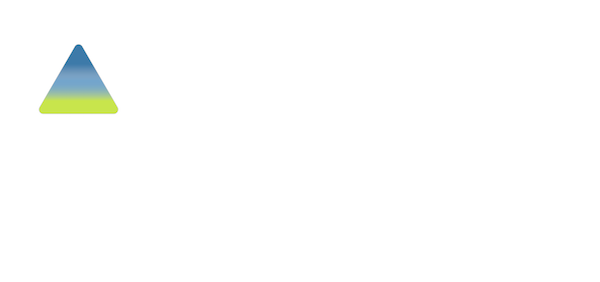- It is recommended to ensure the youth has received comprehensive testing and evaluation including the following as appropriate:
- Occupational Therapy assessment for fine motor skills and sensory processing.
- Speech Language Pathology assessment for social skills.
- Physical Therapy assessment.
- Functional Behavioral Analysis conducted by a behavior specialist or psychologist.
- Test of Problem Solving Skills (TOPS).
- Assessment of Lagging Skills and Unsolved Problems (ALSUP).
- Support requests to school for an Evaluation Team Report or Independent Educational Evaluation
- An ETR is a summary of findings from an initial evaluation or reevaluation that outlines strengths and weaknesses and identifies support needs of the student. Parents/guardians may request an Evaluation Team Report (ETR) in writing.
- Parents/guardians are able to request an Individualized Educational Evaluation (IEE) to help identify the student’s needs and strengths if there is not agreement on the ETR done by the school district. The IEE is conducted by a neutral third party and at no cost to the parent/guardian.
- Ask school district of residence to conduct another Evaluation Team Report (ETR) if one has not been done in the last 12 months. This should include Occupational Therapy, Sensory, Speech/Communication and Social/Emotional evaluations. Advise parents of their right to request an independent educational evaluation (IEE) if the ETR is not due or if they do not agree with the testing results and recommendations from the evaluation the school district did.
Educational Resources for Caregivers

The ALSUP (Assessment of Lagging Skills and Unsolved Problems) is a discussion guide created to assist caregivers in identifying a child’s lagging skills and unsolved problems. Rather than viewing a child’s difficulties as attention-seeking, manipulative, coercive, unmotivated, lazy, or limit testing, lagging skills provide more accurate, productive, actionable lenses. (Accompanies the books The Explosive Child and Lost at School by Ross W. Greene, Ph.D.)
A Guide to Parent Rights in Special Education can be helpful when having discussions with the local school system. It serves as the required parent notice of procedural safeguards.
For assistance with locating a parent mentor.
The Special Education Federal and State Requirements-Operational Standards and Guidance website is also a great resource to keep up to date on policies and procedures.
Provides family and professional resources on supporting early learning and development.
Educational Advocacy
The Ohio Coalition for the Education of Children with Disabilities (OCECD) is a statewide nonprofit organization that serves families of infants, toddlers, children and youth with disabilities in Ohio, educators and agencies who provide services to them.
Ohio Department of Education![]()

Disability Rights Ohio (DRO) provides legal advocacy and rights protection to a wide range of people with disabilities. This includes assisting individuals with problems such as abuse, neglect, discrimination, access to assistive technology, special education, housing, employment, community integration, voting and rights protection issues.
Individualized Education Plan (IEP)
Work with school to ensure IEP addresses all areas of concern:
- The school should provide a planning form, listing the areas of concern that may need to be addressed.
- Ask for the school evaluation to include all areas of concern: Occupational Therapy to address any sensory needs; Speech and Language to address social, communication, and problem solving skills; a functional behavior analysis addressing any behaviors of concern; social/emotional; executive functioning; and any other areas the parent or school feel are concerning.
- Include accommodations for support access. Better support in the school setting will likely lead to improved outcomes. IEP may include accommodation to allow youth better access to supportive staff, especially if they are experiencing academic difficulties.
- When youth is in distress and dysregulated, things that are already difficult for them may become impossible. Do not expect youth to be able to read or write to communicate their needs when in this state. IEP can provide accommodations such as visual supports to help youth identify and communicate their “state” when they are dysregulated. Example: Make an “I need a break” card, with visually represented emotional states (like 1-5 scale, or zones of regulation). School staff should be informed on how these should be used in a positive manner.
- A Functional Behavioral Assessment (FBA) can be helpful to understand the reasons for challenging classroom behaviors.
- Use information from quality resources such as Minnesota Children’s Mental Health Fact Sheets to optimally support this youth at school (many MH diagnoses).
- f youth has been in a residential placement, ask the residential team to help document for the IEP what works and what is helping this youth as they will have the most recent information. Ask them to be as detailed as possible and to include strengths in addition to areas for improvement. An IEP meeting will be needed to make sure the current IEP team is in agreement about adding this information.
- Transitioning to a new school can be a good time to update the IEP and ensure youth is receiving all identified services as well as modifying the transition plan as they enter young adulthood or post-graduation employment.
- Include social-emotional goals on the IEP to help youth with any behaviors being seen in the school environment. School staff may need some specially designed instruction to teach and support these skills.
- Utilize the IEP to address student placement to ensure it is not an overly restrictive environment. Explore options for youth to be in the general education setting for specials, home room, or their favorite class with typical peers. The help of an advocate or family peer supporter could help the parent/caregiver assess and address any concerns with the school team.
- Ensure that the youth has access to extracurricular services and activities. The IDEA (Individuals with Disabilities Education Act) states that each public agency must take steps, including the provision of supplementary aids and services determined appropriate and necessary by the child’s IEP Team, to provide nonacademic and extracurricular services and activities in the manner necessary to afford children with disabilities an equal opportunity for participation in those services and activities.
- The IEP team can create transition goals under section 5 to help this youth transition to adulthood. This may include financial planning, self-advocacy, navigating transportation, navigating healthcare visits, living independently, and any other goals the team feels are necessary for this youth to successfully transition to adulthood.
- Look into options for extending high school. If the IEP team decides that youth needs to remain in school and not graduate, they can stay an extra year or until their 22nd birthday to continue working on goals and their transition to post-secondary life. This would need to be planned and documented in the IEP. Public schools are required to provide a Free and Appropriate Education (FAPE) until graduation and a diploma is received.
- Document a plan to reach a specific graduation date so that everyone has a clear understanding of the timeline, path, and requirements to reach this goal.
IEP Resources

The Ziggurat Group provides comprehensive autism evaluation and intervention services for children and adults. The Ziggurat Model is recommended as a process and framework for designing individualized, comprehensive intervention plans for children with autism.
The Ziggurat Model book can be borrowed from the OCALI library. The library can be accessed by anyone in Ohio free of charge. Materials can be checked out online and shipped free of charge.
OCALI Lending LibraryEducation Resources for Staff & Teams
Free reading resources for families and professionals who want to enhance their understanding of autism spectrum disorder and how to support individuals with ASD through the use of book studies. Listed books can be borrowed from the OCALI lending library.
Career Development and Transition Planning Resources
Guide developed by the U.S. Department of Education Office of Special Education and Rehabilitative Services To ensure that all students and youth with disabilities are equipped with the skills and knowledge to achieve their post-school and career goals.
OCALI Lifespan Transitions Center connects individuals, families and practitioners with resources to expand perspectives and knowledge. Resources should be used for reference rather than as an “exact guideline” and with consideration of each individual’s desired adult life goals.
Project SEARCH is an intensive 9-month internship program which provides training and education. The goal is competitive integrated employment for students with disabilities.
Ohio Department of Education Resources and Training
Safety & Law Enforcement Interactions
Suggested Resources
Reading Recommendations
Lost at School: Why Our Kids with Behavioral Challenges are Falling Through the Cracks and How We Can Help Them by Ross W. Greene PhD
Late, Lost and Unprepared: A Parents' Guide to Helping Children with Executive Functioning by Joyce Cooper-Kahn and Laurie C. Dietzel
Piller, A., & Achord, A. (2022). Defining Trauma-Informed Care in OT The American Journal of Occupational Therapy, 76(Supplement_1), 7610505061p1-7610505061p1.


